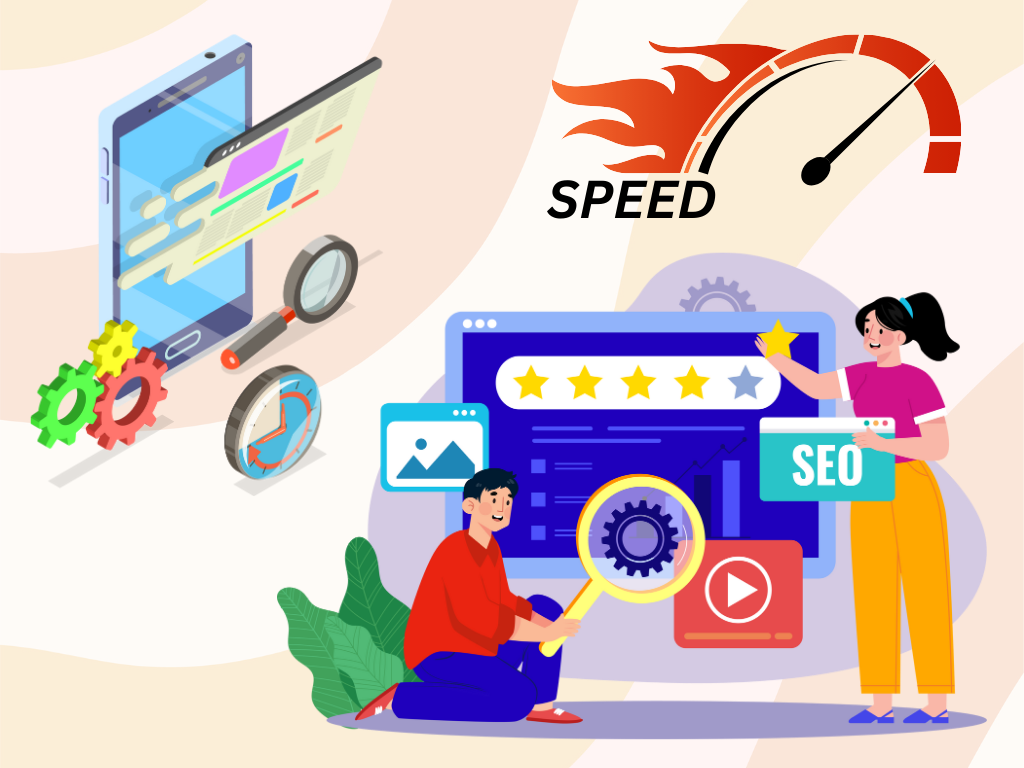
In the fast-paced digital landscape, speed is everything. When it comes to websites, page speed—the time it takes for a web page to load—is more than just a technical factor; it plays a pivotal role in user experience, search engine optimization (SEO), and conversion rates. A slow website can frustrate users, hurt your search rankings, and lead to missed opportunities for revenue. Let’s explore how page speed impacts SEO and conversions, and what you can do to optimize it.
Page Speed and SEO
Search engines like Google prioritize user experience, and page speed is a critical factor in delivering a seamless browsing experience. Here’s how page speed impacts your SEO:
1. Core Web Vitals
Google’s Core Web Vitals metrics—Largest Contentful Paint (LCP), First Input Delay (FID), and Cumulative Layout Shift (CLS)—measure page speed and interactivity. These metrics are now part of Google’s ranking algorithm, meaning slow-loading pages may rank lower in search results.
2. Mobile-First Indexing
With mobile-first indexing, Google primarily uses the mobile version of a website for ranking and indexing. Since mobile users are more likely to abandon slow-loading sites, poor page speed can significantly hurt your mobile rankings.
3. Bounce Rate
Slow page speeds often result in higher bounce rates, signaling to search engines that your content isn’t meeting user expectations. This can negatively affect your rankings over time.
4. Crawling and Indexing
Search engine crawlers have limited time to spend on each website. If your pages load slowly, crawlers may index fewer pages, reducing your site’s overall visibility.
Pro Tip: Use tools like Google PageSpeed Insights or Lighthouse to assess and improve your page speed performance.
Page Speed and Conversions
Page speed doesn’t just affect your rankings—it also directly impacts your bottom line. Here’s how:
1. User Experience
Fast-loading pages create a positive user experience, encouraging visitors to stay longer and engage more. A delay of even one second can result in a significant drop in user satisfaction.
2. Conversion Rates
Studies show that a one-second delay in page load time can reduce conversions by 7%. For e-commerce sites, this can translate to thousands or even millions of dollars in lost revenue annually.
3. Customer Retention
Users are less likely to return to a slow website. High page speeds foster trust and encourage repeat visits, which are crucial for long-term customer relationships.
4. Mobile Shopping Behavior
Mobile users expect instant gratification. Slow-loading pages lead to abandoned carts and lost sales, especially in mobile e-commerce.
Pro Tip: Use A/B testing to analyze how page speed improvements affect your conversion rates.
How to Improve Page Speed
Improving your page speed is a multi-faceted process that involves technical optimization, better hosting, and streamlined design. Here are some actionable tips:
1. Optimize Images
- Compress images using tools like TinyPNG or ImageOptim.
- Use modern formats like WebP for better compression.
- Implement lazy loading to load images only when they appear in the user’s viewport.
2. Minimize HTTP Requests
- Combine CSS and JavaScript files to reduce the number of requests.
- Use browser caching to store static files locally.
3. Leverage a Content Delivery Network (CDN)
CDNs distribute your website’s content across multiple servers, reducing the physical distance between users and the server, and speeding up load times.
4. Enable Gzip Compression
Compress your website files to reduce their size and improve load times.
5. Improve Server Response Time
Choose a reliable hosting provider and consider upgrading to a dedicated server or a VPS for better performance.
6. Prioritize Above-the-Fold Content
Ensure the content visible to users upon page load is displayed quickly, even if the rest of the page loads afterward.
7. Remove Unnecessary Plugins and Scripts
Audit your website for outdated or unnecessary plugins and third-party scripts that may slow down your site.
Pro Tip: Regularly monitor your website’s performance to catch and address speed issues before they impact user experience.
Tools for Measuring Page Speed
Here are some essential tools to evaluate and optimize your page speed:
- Google PageSpeed Insights: Provides insights and suggestions for improving page speed.
- GTmetrix: Offers detailed performance analysis and recommendations.
- Pingdom: Monitors website speed and performance over time.
- WebPageTest: Allows in-depth testing of page load times.
